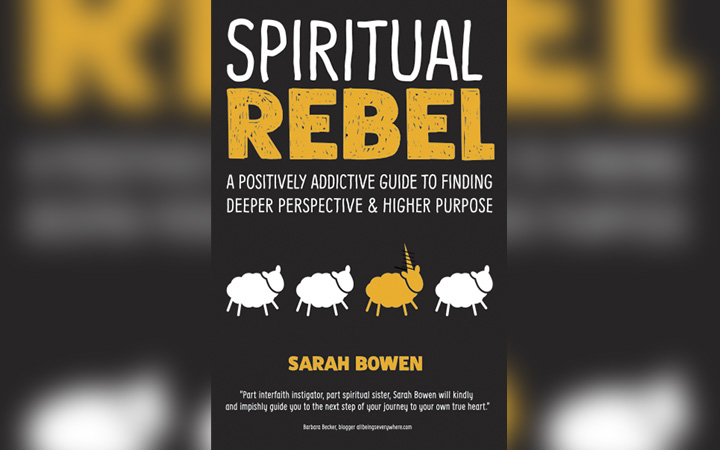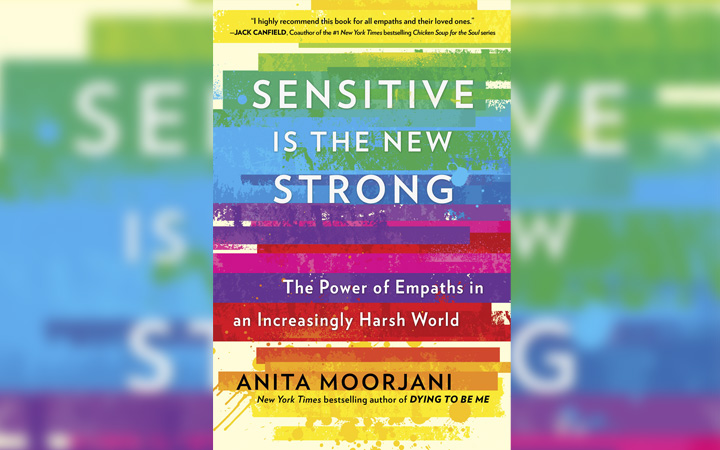3 Rebellious Practices for Destressing Your Holidays

Being a self-proclaimed spiritual rebel means my family is usually subject to a whirlwind of holiday traditions and celebrations—from Saint Andrews Day to Hannukah to Yule to Festivus and finally Christmas and New Year’s Eve. Boxes come in and out of the basement each week, as I excitedly decorate for each.
Yet, this year my family chose to “holiday-in-place.” And while at first, I thought that would destress me, it soon added new things to worry about. Did I really need to decorate if no one was coming over? How do I cut down my holiday recipes to feed two instead of ten? What do I do with the grief I feel about lost traditions—like consuming yummy Hanukkah gelt while playing dreidel or the feeling at church on Christmas Eve when all the lights are out, and each of us holds a candle to sing Silent Night? As I racked my brain to figure out how to do all of this at a distance, a little voice whispered, “Stop. Just stop.”
And so, I’m rebelling against the need for endless cheery holiday music, frequent zoom gatherings, and constant decorating. It’s been a long, challenging year, and what I need most is respite.
Practice #1: Embracing animality
Rather than decorating the whole house, I’m getting crafty, inspired by our cats Buba-ji and Deacon—the VIPs of this year’s guest list. (Or more precisely, our only guests.) While each feline usually received a small gift from under our tree—and eventually many discarded boxes and crumpled up wrapping paper balls—they often take a back seat to human celebrations. This year they get the front seat.
How I’m doing it: Our cardboard boxes from holiday shopping have been refashioned into a stunning multi-floor cat condo where our Christmas tree is usually placed. Then, I gathered mate-less socks from the laundry room and filled them with catnip for gifts. And with the help of Google, I located recipes to make homemade cat treats (rather than the traditional dozens of sugar cookies that addict our guests and fatten us up!)
Practice #2: Tackling tsundoku
Each year when discussing our holiday wish lists, each member of my family begs something along the lines of, “Please, Sarah, I don’t need any more books.” On the flip side, when I am asked what I want for the holidays, I always answer… books! Yes, I am a book addict. And that means more than a hundred books await being read in my home library. The Japanese language has a word for this habit, made of the characters for “to pile up” and “to read.”: 積ん読 (pronounced Tsundoku). This month, I’m tacking that pile.
How I’m doing it: I’ve set aside an hour each morning for reading and negotiated with my husband for house-wide quiet time. A reminder on my phone helps me to stay loyal to my commitment. I cocoon up in a fluffy winter blanket with my book and a hot mug of tea. I set a timer for 60 minutes and settle in.
Practice #3: Sacred napping
Sleep researchers suggest that our body naturally becomes tired about 8 hours after we wake up and they recommend taking a 30-minute nap at that time. It can be hard for me to stop during the day, there always being something more to do, and so I tend to hit the caffeine and keep plugging away. For the month of December, I’ve challenged myself to take nap time—and to consider it sacred. Sacred at its roots means to set aside as well as entitled to respect. Respecting my need to set aside time for rest is critical self-care in a time of pandemic.
How I’m doing it: Because I can’t always fall asleep, I’ve created a couple of 15-min playlists on my phone of soothing sounds—whale calls, Tibetan singing bowls, forest ambiance. I start the music and set my alarm for 30 minutes. The gentle sounds will sometimes knock me out or at least bring me down a notch so that the remaining 15 minutes becomes a deeper, silent rest.
Although these three new practices will not permanently replace the age-old ones which usher our holidays in and out, I do have a feeling they will help me ring in the new year rejuvenated. Join me?

 bout the Author
bout the Author




